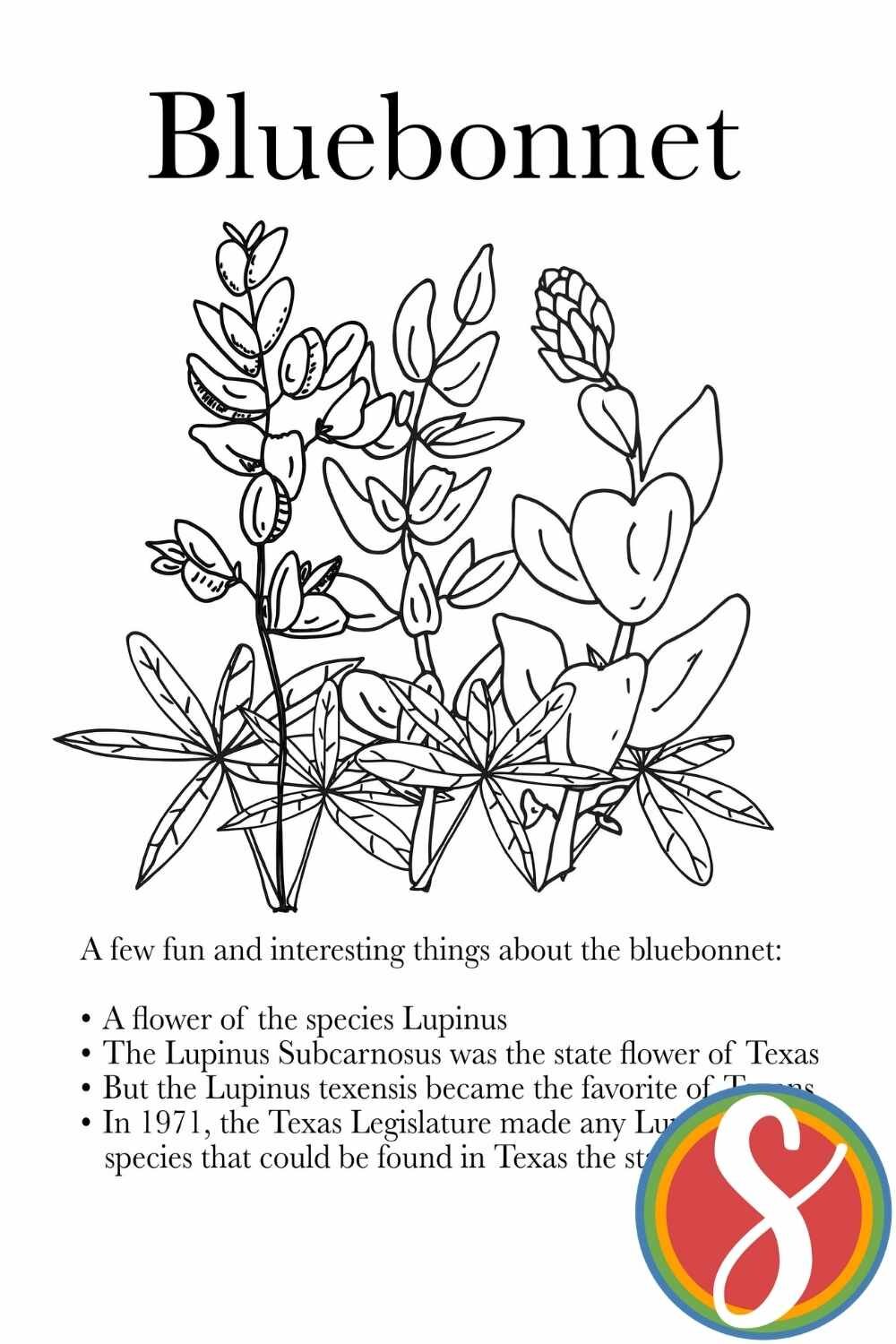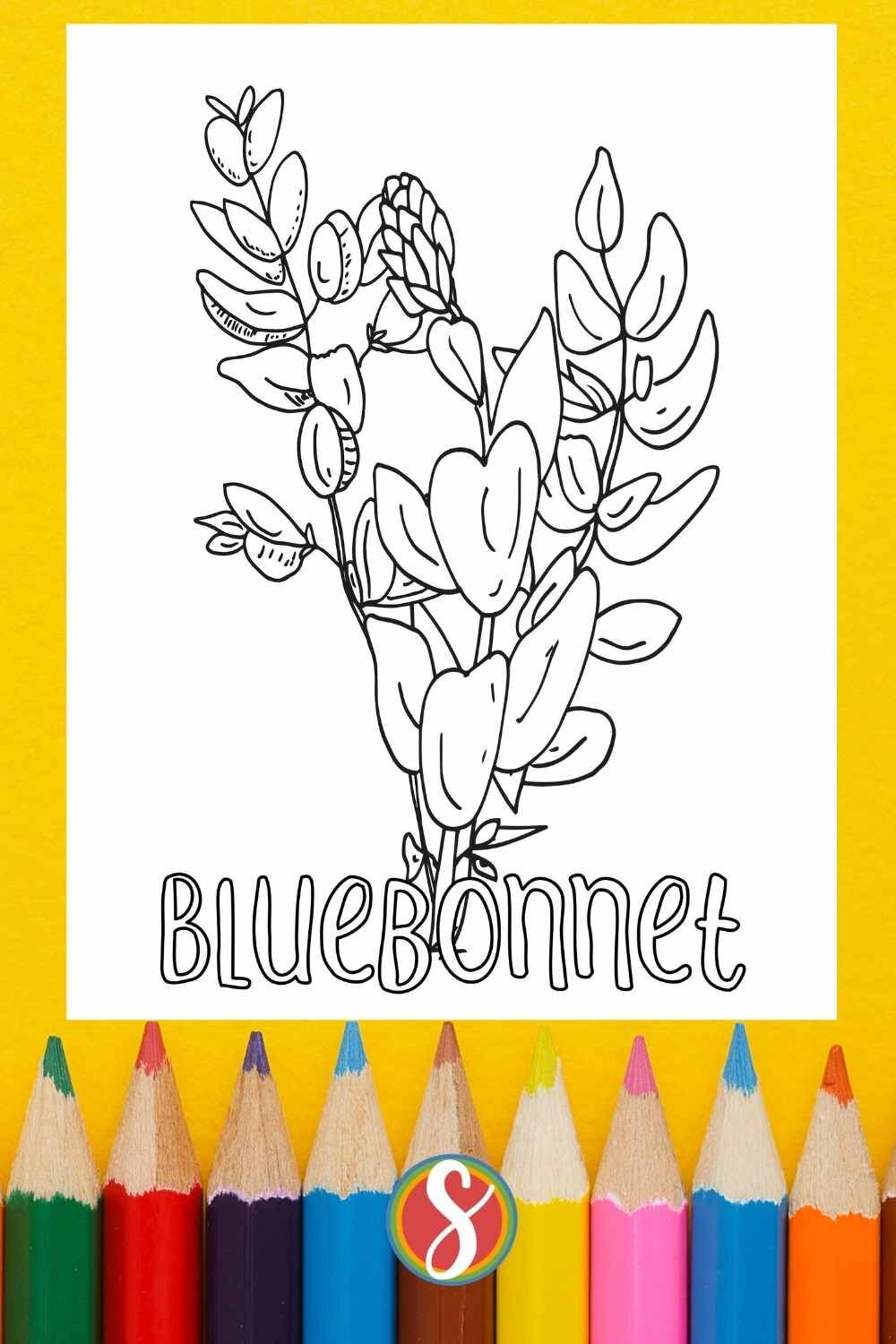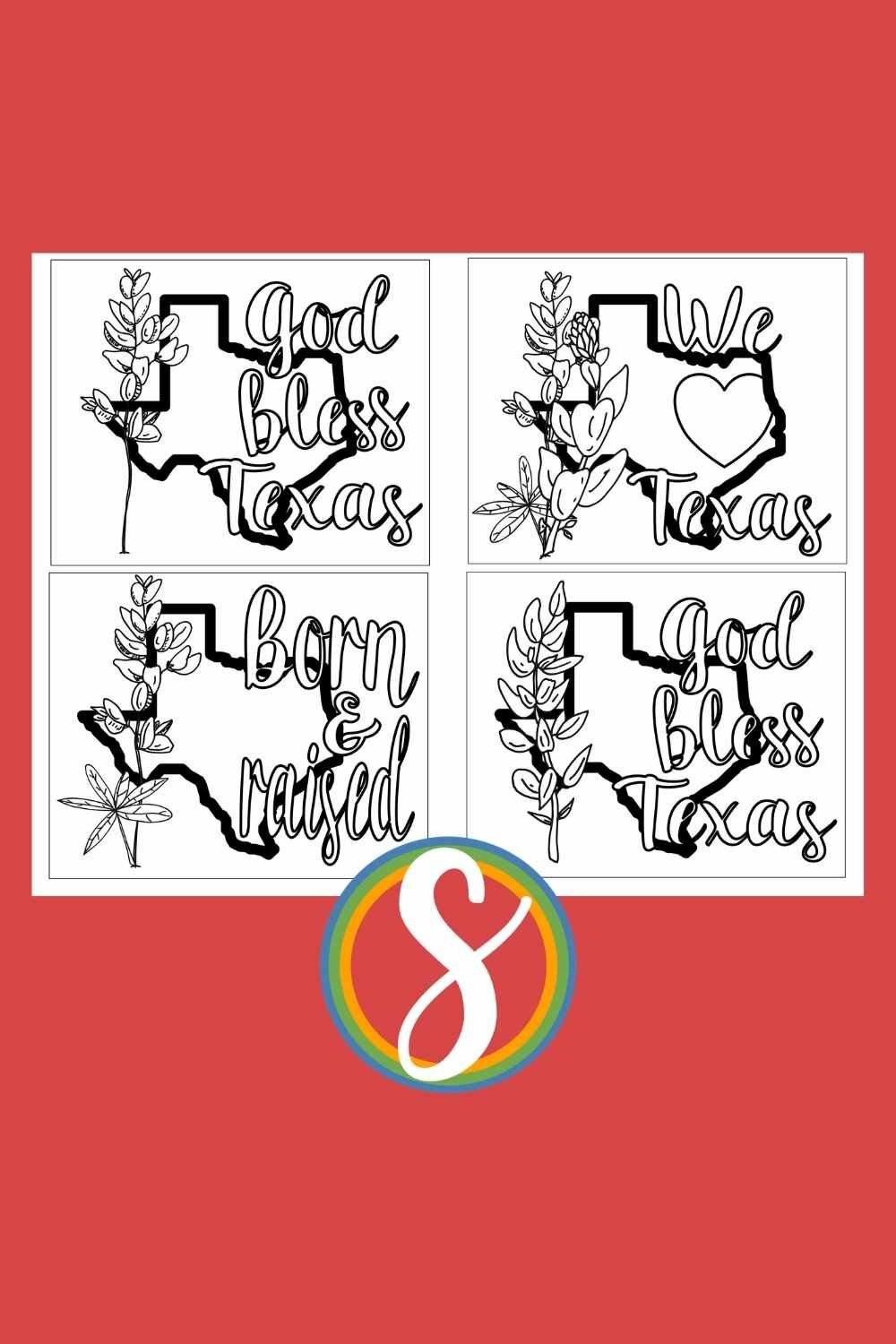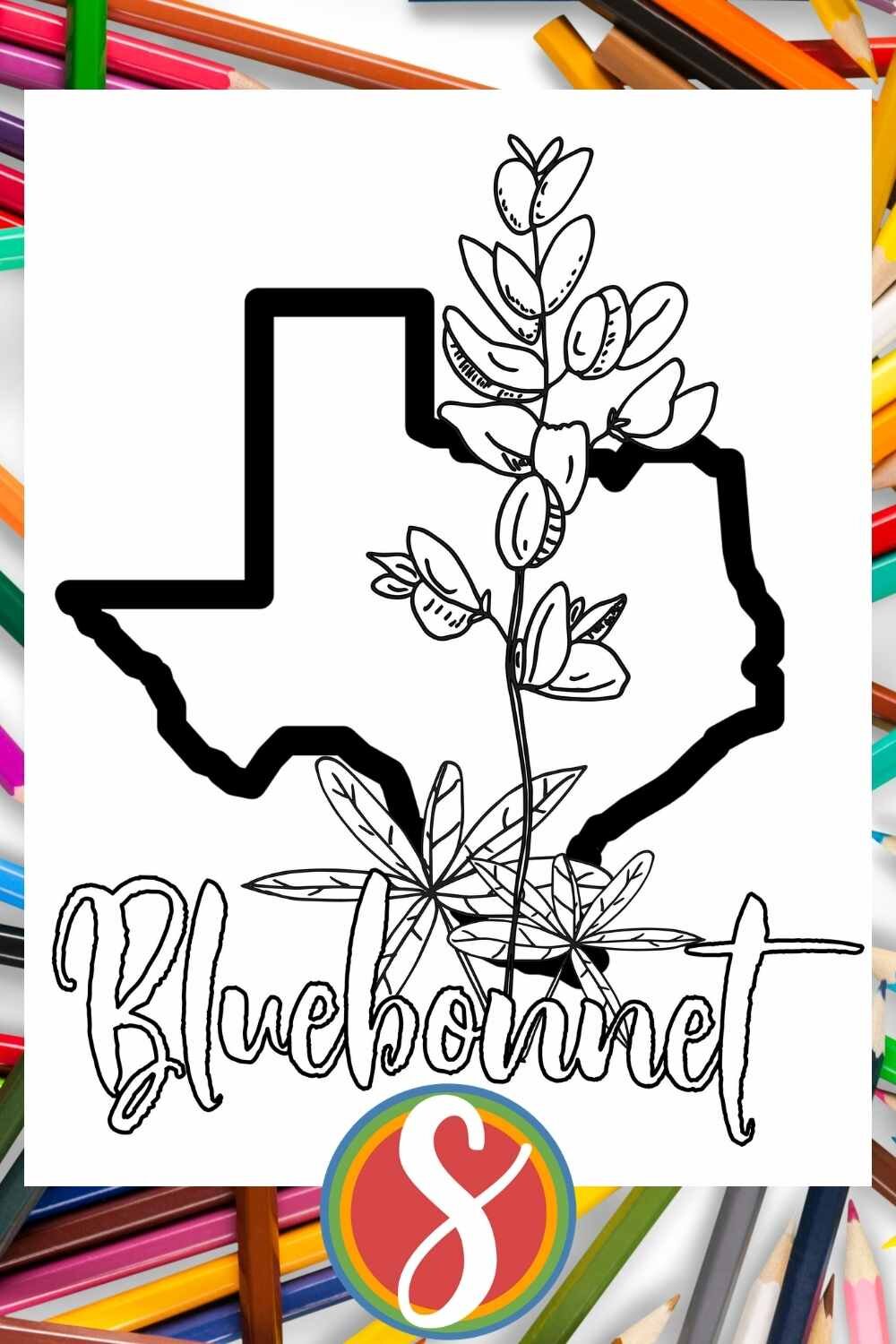Bluebonnets
It has come to my attention that I neglected to have bluebonnet pages on my site and I have to say to my Texan friends, my sincerest apologies for this oversight.
Today I have fixed my error. I hope you love these bluebonnet pages and please pass them along to all of your favorite Texans!
These are high quality images you can print as often as you’d like. I (Stevie) drew the pictures and turned them into these digital bluebonnet coloring pages.
Please link to this page in your compilation of bluebonnet resources!
For each of these pages, just use the button just below the image to print.
Print the Bluebonnet facts printable above
Apparently bluebonnets aren’t predictable, which makes them my kind of flower
It’s difficult to predict exactly when bluebonnets will peak from year to year. We encourage you to explore your environment and see how things are looking. Variations in climate and other conditions determine whether we have a stunning bluebonnet year or a year that is merely stunning. More on bluebonnets at wildflower.org
Print the Bluebonnet color page above
“Bluebonnet” is the common name for a few species of lupines including the Texas bluebonnet (Lupinus texensis), sandyland bluebonnet (Lupinus subcarnosus — also called the Texas bluebonnet) and the Big Bend bluebonnet (Lupinus havardii). These three, plus the rarer Lupinus concinnus and Lupinus plattensis, are lumped together as the “state flower of Texas.” More on bluebonnets at wildflower.org
Print the Bluebonnet cards printable above
What the heck are bluebonnets good for anyway?
First, they are pretty to behold, and they have an intoxicating scent! They also fix nitrogen, which enriches the soil for other plants. Their flowers are attractive to pollinators, and they support several butterflies as host plants including northern cloudywing, gray hairstreak, Henry’s elfin, painted and American lady, and orange sulphur butterflies. - more on bluebonnets at wildflower.org




























